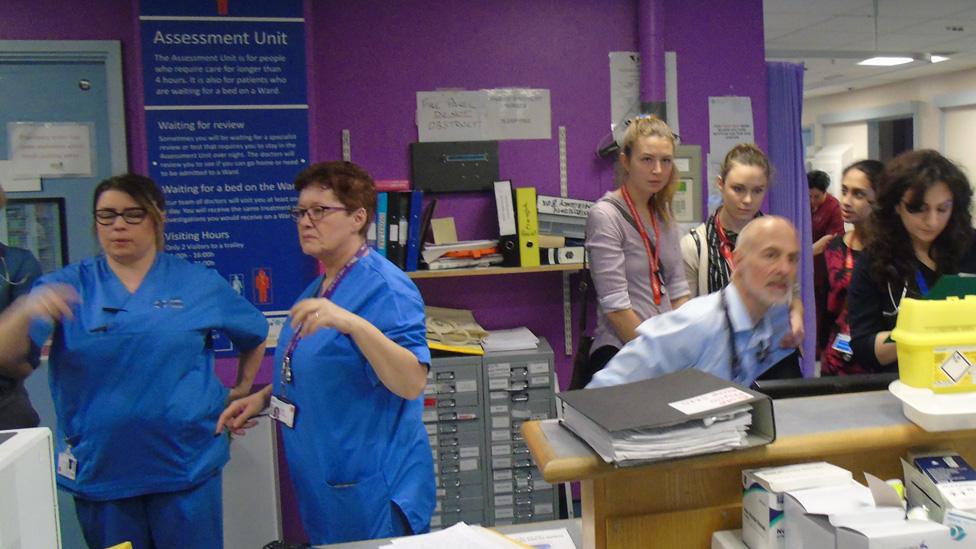University Hospital of Wales, Cardiff assessment waits criticised
- Published
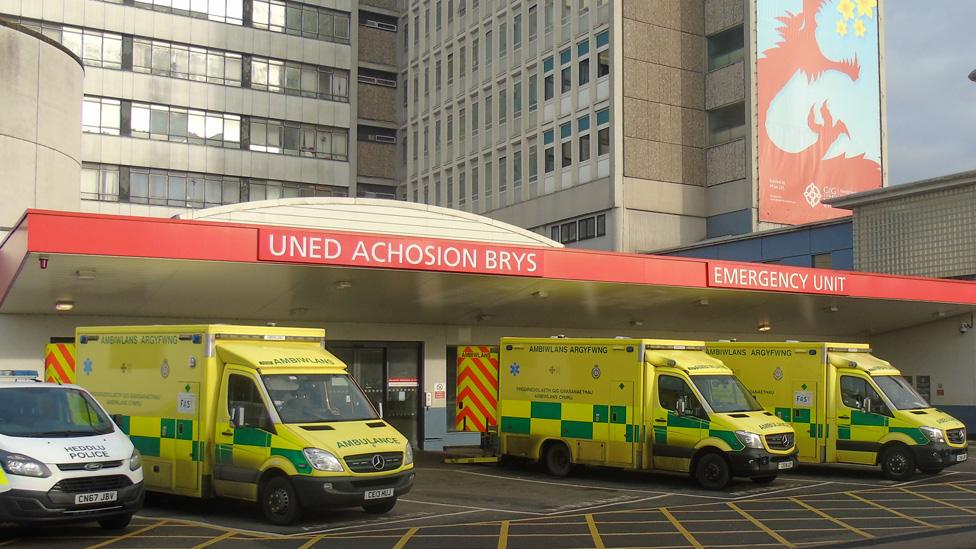
The assessment unit is linked to the emergency unit - both are open 24 hours a day
Many patients waiting to be assessed at Wales' biggest hospital were left in chairs for up to 20 hours, some without proper food or drink.
A critical report by health inspectors , externalordered managers at the University Hospital of Wales in Cardiff to make changes after an unannounced visit.
Cardiff and Vale health board said it had agreed a "robust improvement plan" to address the recommendations.
It is also addressing staffing issues with nurses.
A team from Healthcare Inspectorate Wales (HIW) visited in March, followed concerns raised by the local patient watchdog about the hospital's assessment unit (AU).
The 24-hour AU is where patients are assessed on a trolley, treated, admitted to a ward or sent home.
The inspectors found:
Patients waiting in chairs within the AU lounge for "unacceptable and prolonged" periods of time - many throughout the night
Patients without immediate access to drinking water - some went without hot food, and were not always offered sandwiches or biscuits
The lounge - which has 20 seats - was cramped and offered little or no privacy for patients
Staffing and recruitment issues, often leaving shifts short of staff - including immediate concerns which could impact on patient safety
"Significant improvements" were needed to improve the quality of patient care and the delivery of safe and effective care
The inspectors also heard from staff that patients were moved from the emergency unit - to avoid breaking waiting time targets.
'Tired, cold and hungry'
Staff from both the AU and emergency unit (EU) told inspectors that patients were often inappropriately moved off a trolley from the EU - where they may breach the 12 hour admission target - to sit in a chair in the AU lounge.
Some patients also remained in the EU "for very prolonged periods" to prevent other patients breaching the 12 hour target.
In March, when the three-day inspection took place, 34 patients waited more than 12 hours in A&E over the month. This was the lowest number recorded for any major emergency unit in Wales, according to official figures.
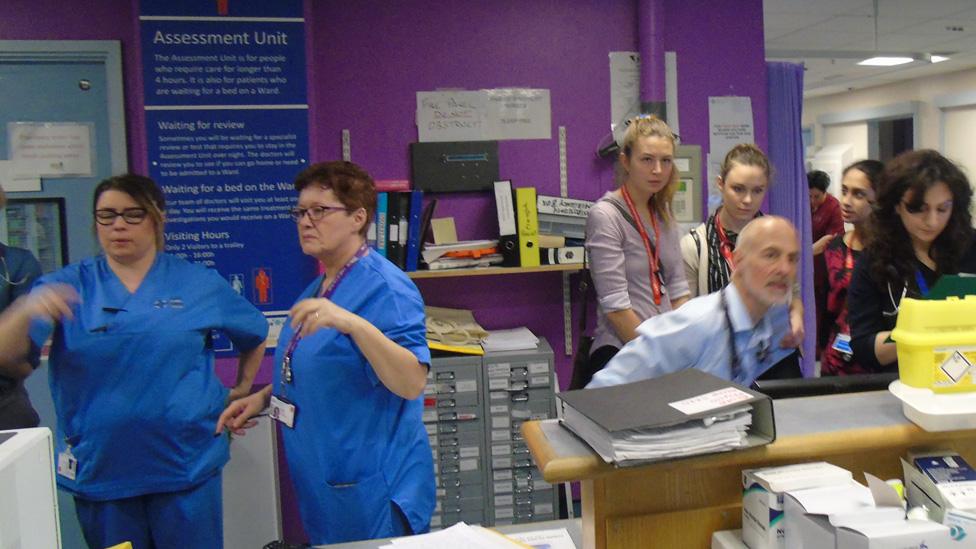
Inside the UHW assessment unit during a busy January morning in 2018
One member of staff called the numbers in AU in the evening often "overwhelming".
Another told inspectors it was "increasingly common" to nurse patients in chairs for 20-30 hours and more.
"These patients are unwell, septic, requiring intravenous treatment and sit in chairs throughout their treatment, in areas where there is only one nurse to 10-20 patients," they said.
What did patients say?
Most praised their care and many said staff were "kind and sensitive".
But responses to a questionnaire included:
"I have been sitting here (in a chair) through the night, I'm tired, cold and hungry. I have not been given any food and have to wait until I'm asked for a drink. Also no warm blankets"
"Been sat in this chair all through the night and in so much pain, there are no beds available, but all I want is to lie down"
"I have been sat here (in the lounge at 9am) since 10pm last night. I am in agony with my tummy and have a history of ischemic bowel disease. All I want is to lie down but I can't"

What has happened since?
After the inspection, an extra nurse and a healthcare support worker were immediately recruited for the AU lounge area, while there were longer term recruitment plans to fill 26 vacancies by next March - as the AU and EU units were "heavily reliant" on temporary staffing.
Soup is provided for lunch and dinner is also now available, while curtains will provide more privacy and some recliner chairs are now available for the most vulnerable or those facing the longest waits.
A health board spokeswoman added: "A number of measures were put in place immediately and the health board is committed to delivering the longer term actions required to ensure patients have timely access to care and an improved overall experience".
- Published24 January 2019
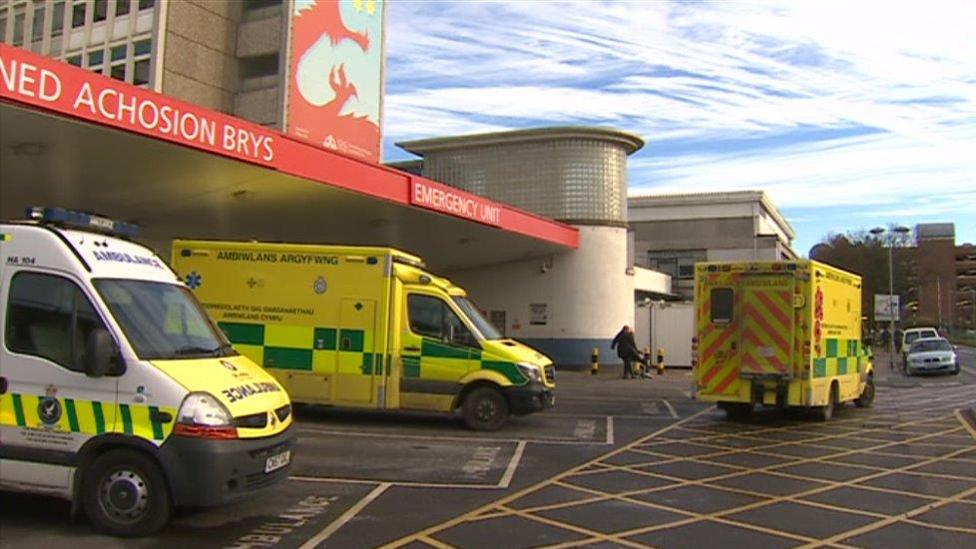
- Published3 January 2018
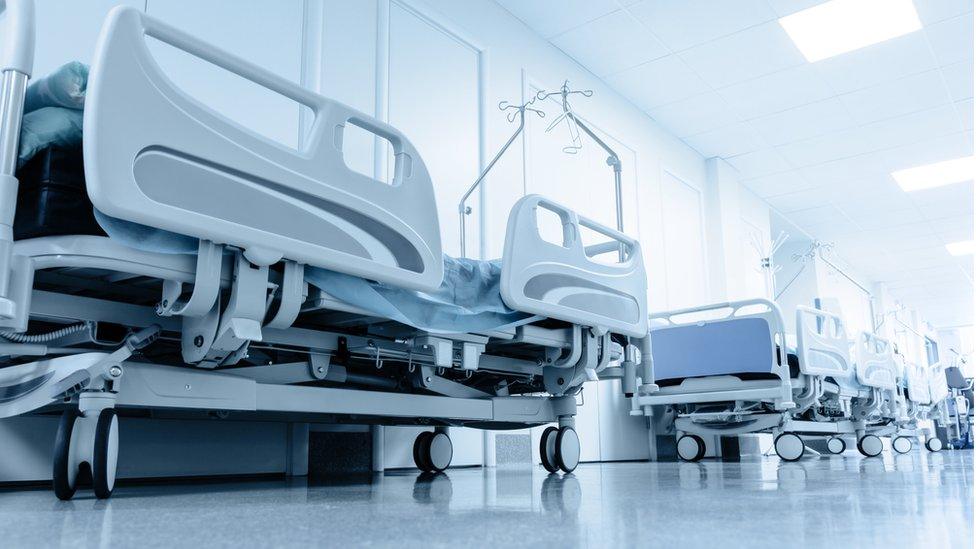
- Published18 January 2018
